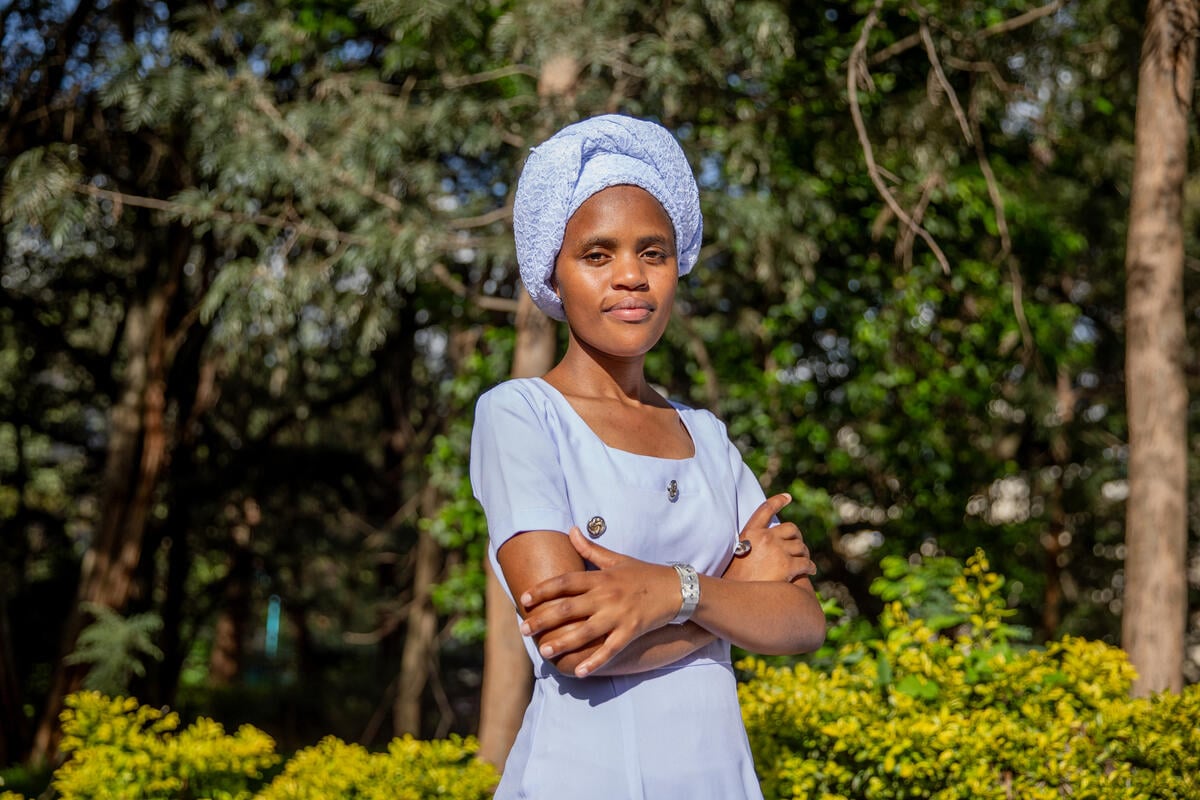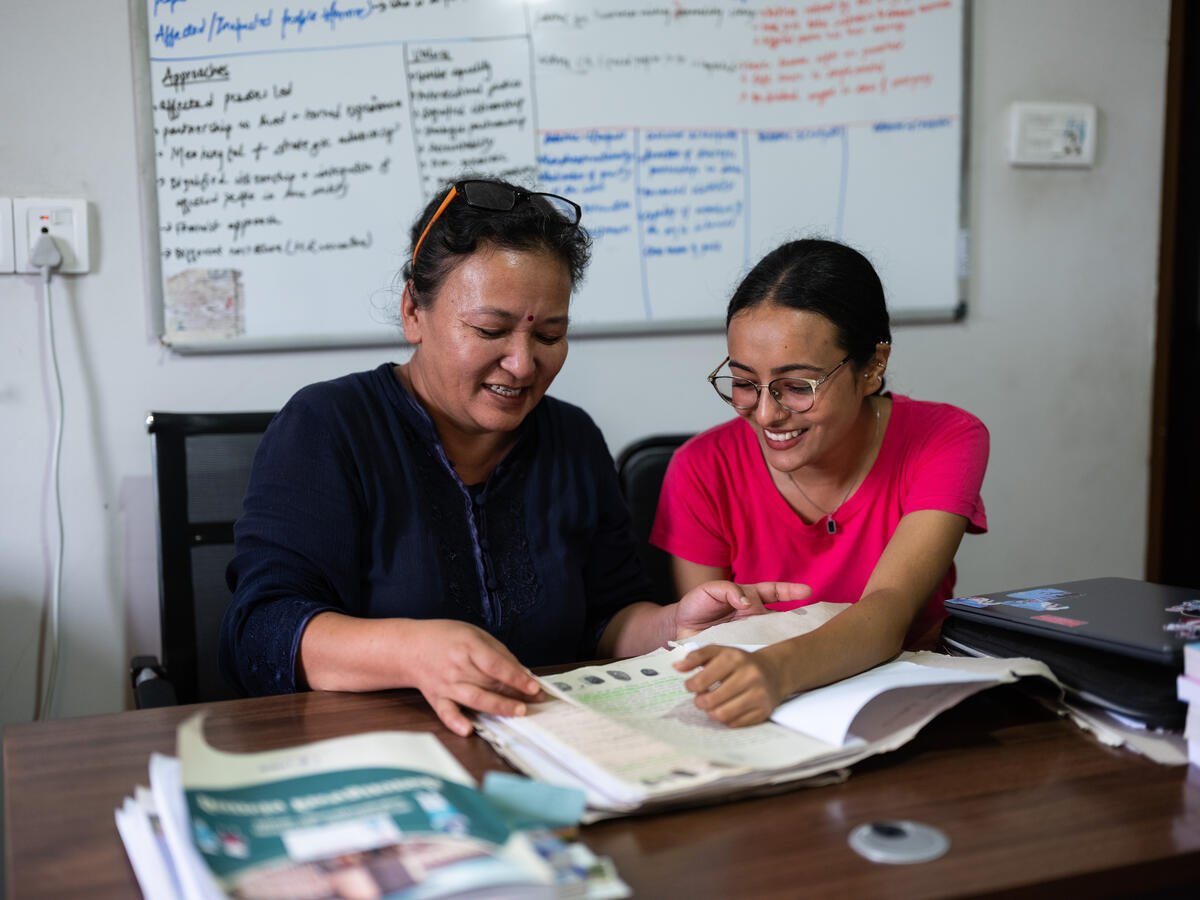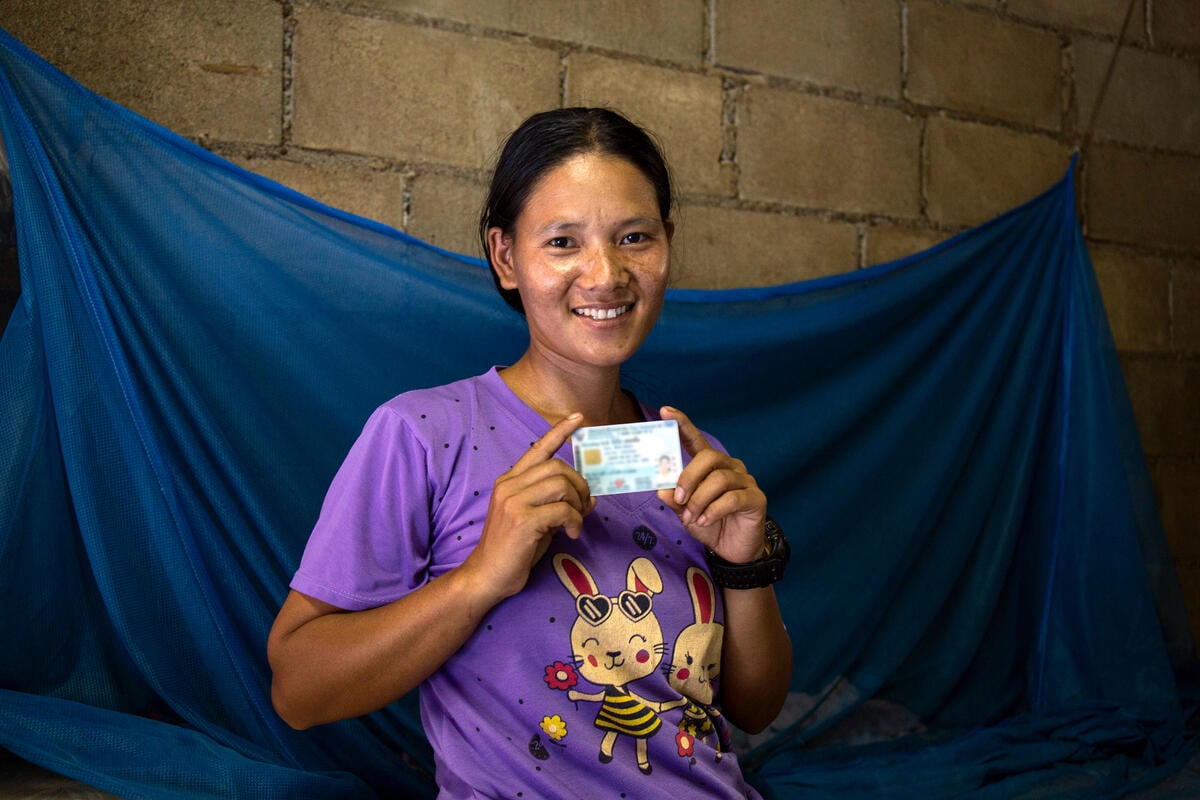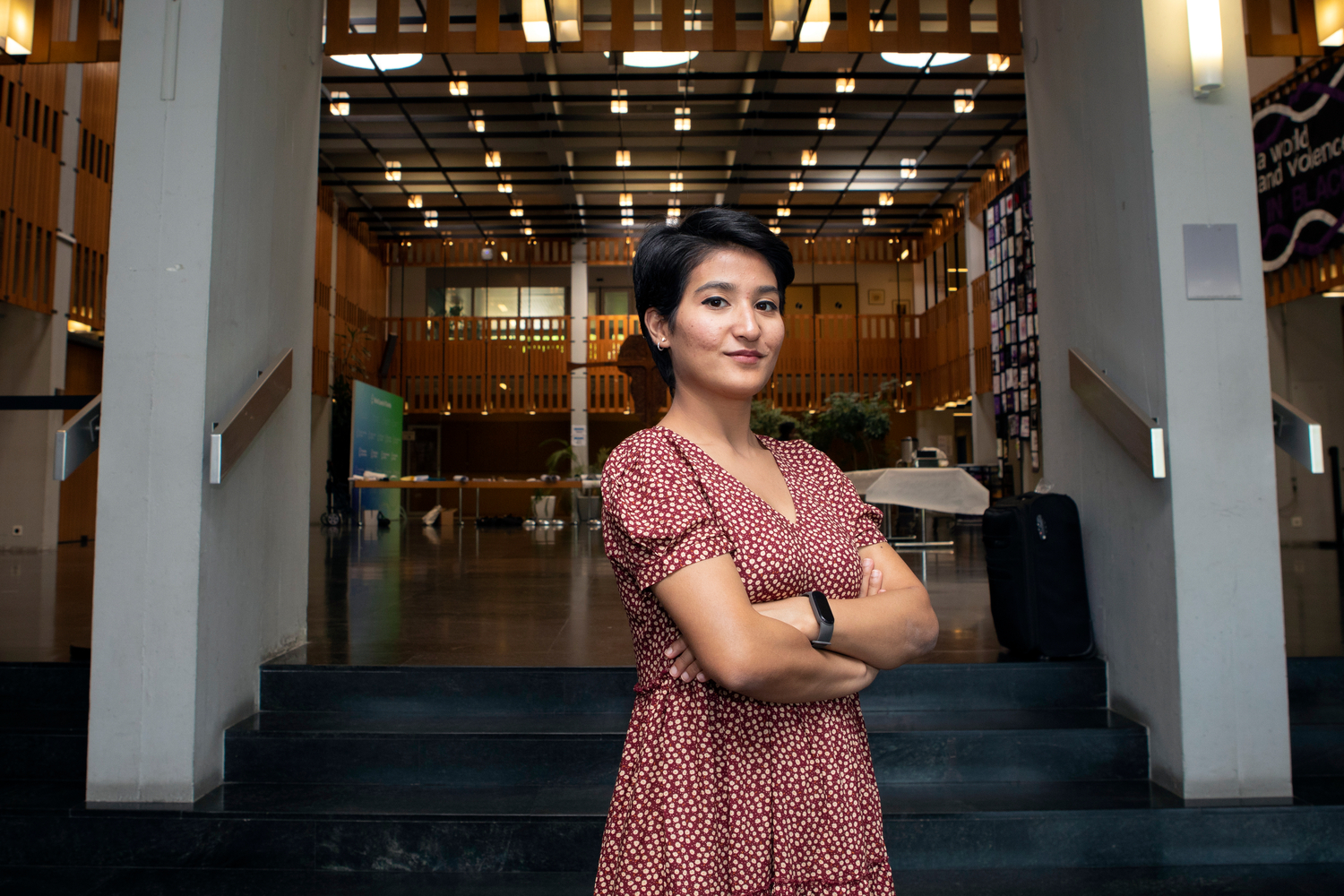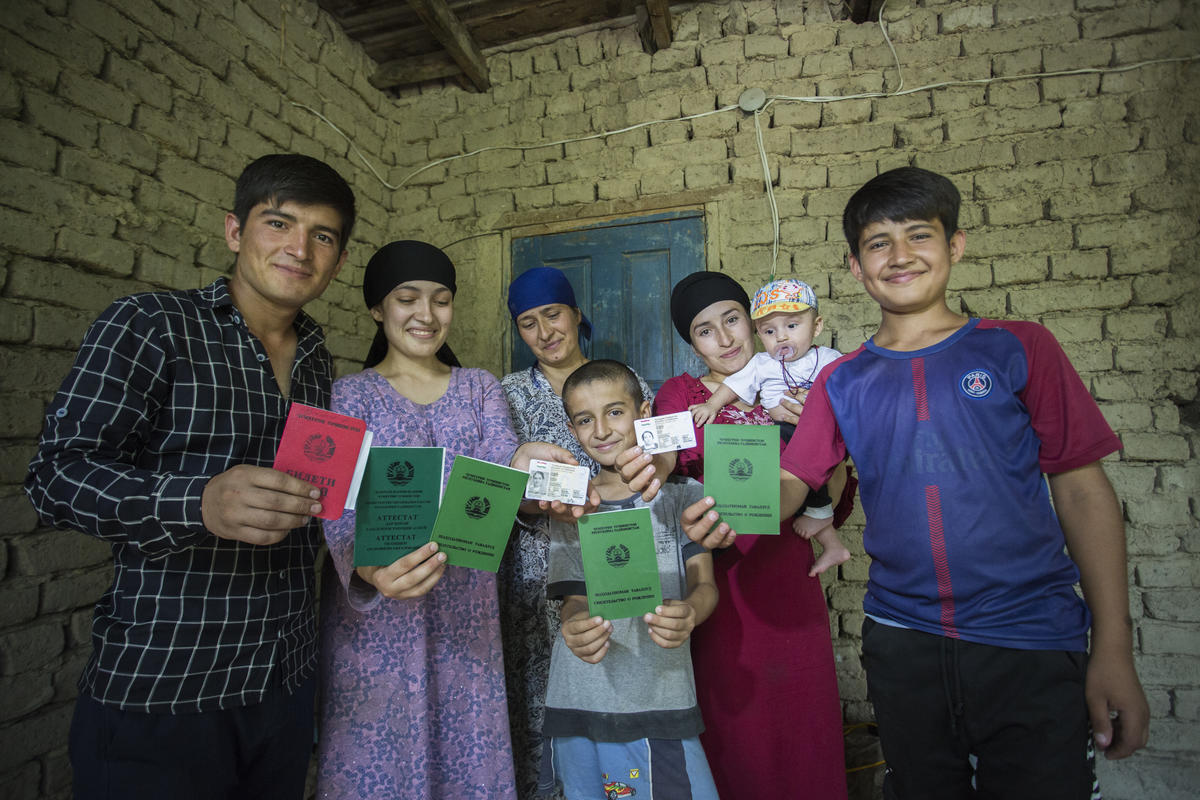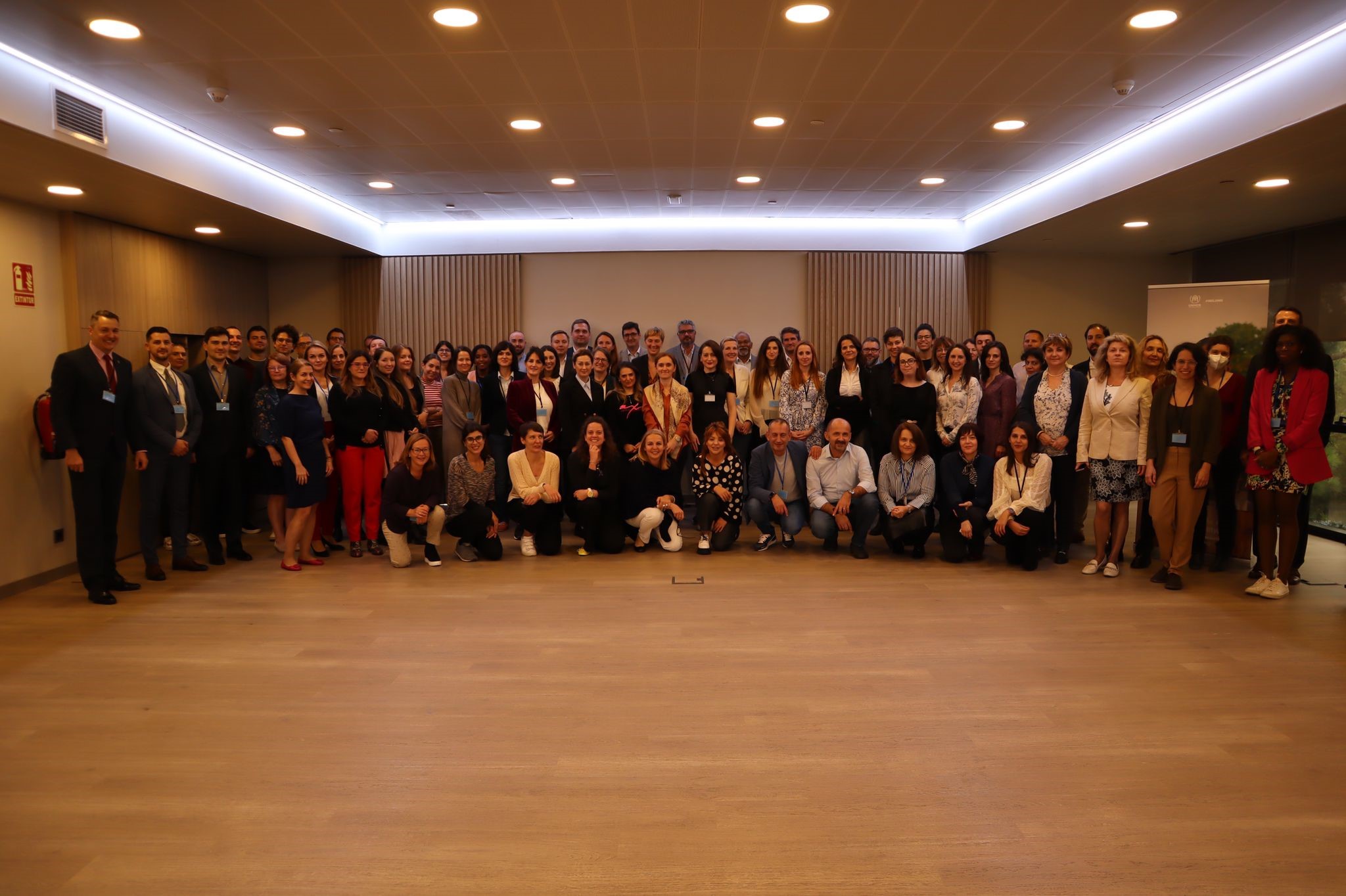Khartoum symposium discusses citizenship ahead of referendum
Khartoum symposium discusses citizenship ahead of referendum

KHARTOUM, Sudan, November 9 (UNHCR) - As a referendum on the future of Sudan draws closer, more and more people are becoming worried about their future - especially the internally displaced, like Rose* in the capital, Khartoum.
A lifetime of hardship is etched into the face of the 50-year-old, who has lived in Khartoum's Mayo camp for the displaced for much of the time since fleeing her hometown of Kajo Keji some 20 years ago to escape the conflict then ravaging South Sudan.
Her common law husband was from the north, but died when their children were young. "Now my children are grown up and they have babies of their own. But they don't have birth certificates or national identity cards - no papers to show if they are northerners or southerners," she said.
"If South Sudan separates from the north and becomes the world's newest country, what will happen to us southerners in the north?," Rose asked. It's a question that has been preoccupying UNHCR, especially Assistant High Commissioner Erika Feller.
The refugee agency's top protection official visited Mayo camp at the weekend to listen to the concerns of people like Rose. Over the next year, UNHCR will be making a major push to persuade more countries to accede to the 1961 Convention on the Reduction of Statelessness and to reduce the number of stateless people worldwide - an estimated 12 million.
A couple of days before meeting the internally displaced at Mayo, Feller gave the keynote address at a Sudan Citizenship Symposium in Khartoum and urged Sudan to accede to the 1961 Convention and the 1954 Convention relating to the Status of Stateless Persons. The gathering, organized by UNHCR and the UN Mission in the Sudan, was aimed at helping leaders of the north and south find solutions on the issue of citizenship.
It's a vital topic because the vast country, which remains fragile after emerging from two decades of ruinous civil war in 2005, organizes a referendum January 9 on whether or not the south should remain in the Sudan or become independent.
What complicates the matter is that years of war left millions forcibly displaced, including an estimated 2 million southerners like Rose who fled to the north and remain there. Many are well integrated in northern communities and can be found in all walks of life, from traders to civil servants. They worry about their fate - as do northerners in the south - should the country split.
There is a very real fear of renewed mass population displacements and of people ending up with a citizenship they have not chosen or even of becoming stateless, with all the problems this entails. Many stateless people are unable to register the birth of a child, go to school, work legally, travel freely, own property or obtain vital identity documents or passports.
Rose has many questions. "What will happen to us after the referendum? Where will we belong? What will happen to the plots of land we have been given here? What will we do if we have to return to the south? Will my children and grandchildren be accepted there?," she asked UNHCR visitors.
She said life was difficult in Mayo, but at least it was a world they knew in a land where her children were brought up. "Some people tell us to register for the referendum, some people say we should go to the south; others say don't. We don't know what to do."
Her neighbour, Regina,* worries about staying in the camp, claiming that Christians from the south have "no dignity" in the Muslim dominated north. "There used to be NGOs who came to help us, but now less and less since the agencies were told to go," she said, adding: "Perhaps life will be better in the south. Maybe we should return."
It will be a decision confronting many people if the south breaks away. For example, many cattle farmers and nomads could find themselves on either side of a new north-south international border. And expatriate Sudanese - refugees and migrants - might also face nationality problems, as could people in mixed marriages. To cap everything, only about 20 per cent of Sudanese have birth certificates, which can be vital as proof of citizenship.
UNHCR's Feller used her address in Khartoum to highlight the importance of simple, inclusive, objective and non-discriminatory citizenship arrangements based on appropriate ties to the state in question rather than ethnic origin, in helping to prevent statelessness.
She noted the possibilities of dual citizenship or granting a choice where two citizenships are available, as well as the importance of protecting the residency rights of people who, for whatever reason, are unable to acquire the citizenship of that state, including the rights to employment, education and health care.
While commending Sudan for taking steps to remove gender discrimination from its nationality laws, Feller warned that "when certain people are excluded from citizenship, the costs are high for everyone." The Assistant High Commissioner also visited Sudan's Darfur region during her stay in the Sudan, which ended on Wednesday.
* Names changed for protection purposes
By Maya Ameratunga in Khartoum, Sudan

